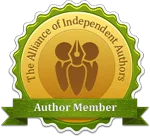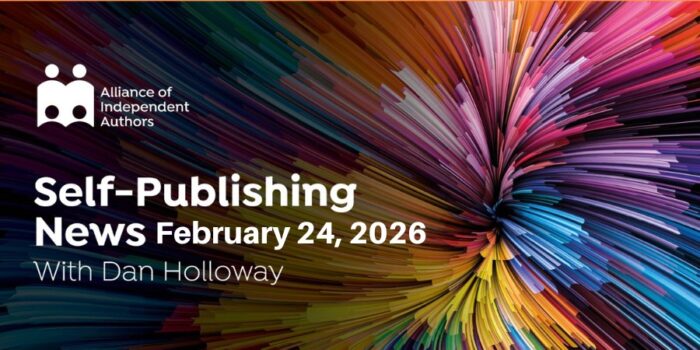
Why choosing the indie author route is a positive choice
When ALLi author Bjorn Larssen asked the members-only Facebook forum of the Alliance of Independent Authors why they had chosen to become indie authors, a flurry of answers boiled down to eight key reasons.
We're sharing them here today to:
(a) encourage those writers who haven't yet made that leap
(b) remind those who have of the many advantages!

A question from Bjorn Larssen, Dutch Icelander born in Poland, brought together the views of indie author members of ALLi from all around the world
These answers provide positive reasons on why our members turned indie, rather than negative reasons to avoid trade publishing. These days authors tend to choose the self-publishing route for what it is, rather than what it is not.
- Control
Indie authors are in charge of all aspects of the publishing process, including not only the writing but the design, formatting, distribution, and marketing. - Speed
As indies, writers can write and publish at their own speed, as fast or as slowly as they like, falling into the natural rhythm that suits them best as individuals. - Creativity
Outside-the-box-thinking is welcome and commonplace when you're an indie author. - Writing Choice
Indie status allows you to write in whatever genre or mix of genres that you like – and to publish under multiple genres under the same name if you wish. - Long-term Gain
Self-published books are immortal – you can keep them in print and keep marketing them for as long as you like. - Financial Clarity
As your own publisher, you have access to sales data on a daily basis from the dashboards of your chosen distribution platforms, so you always know how well your books are selling and can tweak your marketing plan accordingly. - Profitability
By working directly with the distribution platforms, the entire royalty comes to you (unless you choose to self-publish via a service provider), so your potential profit margin is much higher e.g. 70% of the selling price of an Amazon ebook retailing between $2.99 and $9.99. - Rights
As your own publisher, you retain all the rights to your books to exploit as you wish – and of course this includes freedom to assign them to other parties when you want to (e.g. for audiobooks, movies, merchandise, etc).
The Bigger Picture

ALLi's Watchdog John Doppler adds a global perspective
Our Watchdog John Doppler sets the modern indie author's choice into the perspective of the current self-publishing landscape:
“I think we're slowly reaching the point where more and more authors are drawn to self-publishing because it's the process that's right for them, rather than it being an alternative to something they're fed up with. And that's a very good shift of perspective for our industry.
“Self-publishing is a business model in its own right. It isn't defined by the gaps in traditional publishing. It's not something you retreat to when you find out that traditional publishing takes too long or is too difficult; it's not the fallback option.
It's also not a binary, although we often think of self-pub and trad-pub that way. Publishing comprises a whole spectrum of options, from pure DIY indie to assisted self-publishing to hybrid publishing to traditional publishing.
The point you select on that spectrum depends on your willingness to learn, your desire for control over the process, your financial resources, and how much of a balance you want to maintain between getting words on paper and getting your hands dirty with the details of running your own business.”
“So, why did I “go indie”? I've never been anywhere else. It was the perfect option for my temperament, skill set, and goals.”
OVER TO YOU Why did YOU choose the indie route? Or if you didn't, what made you decide not to? Join the conversation via the comments!
Why do #authors turn indie and choose to #selfpublish? @DebbieYoungBN shares 8 key reasons from ALLi members. (Compiled by@DebbieYoungBN) Share on XOTHER POSTS ABOUT INDIE STATUS
From the ALLI Author Advice Center Archive




